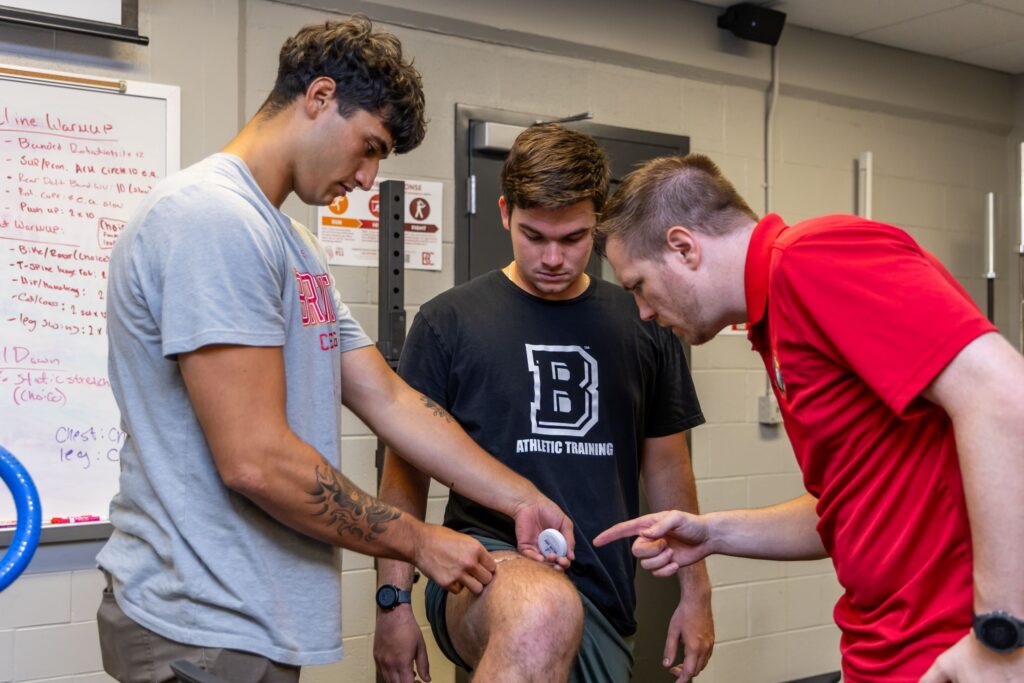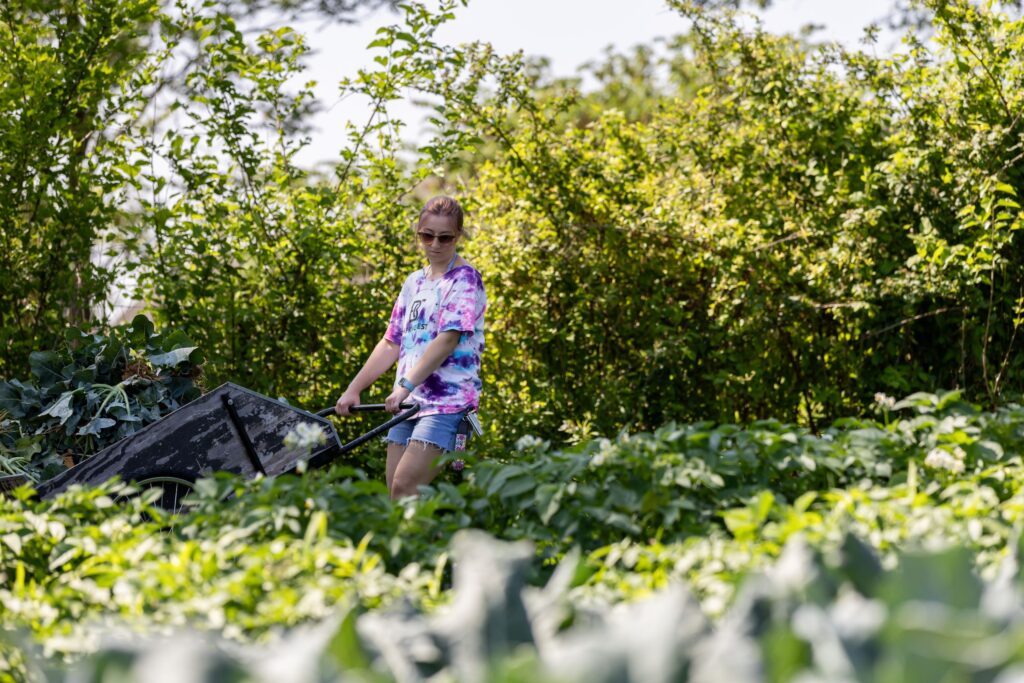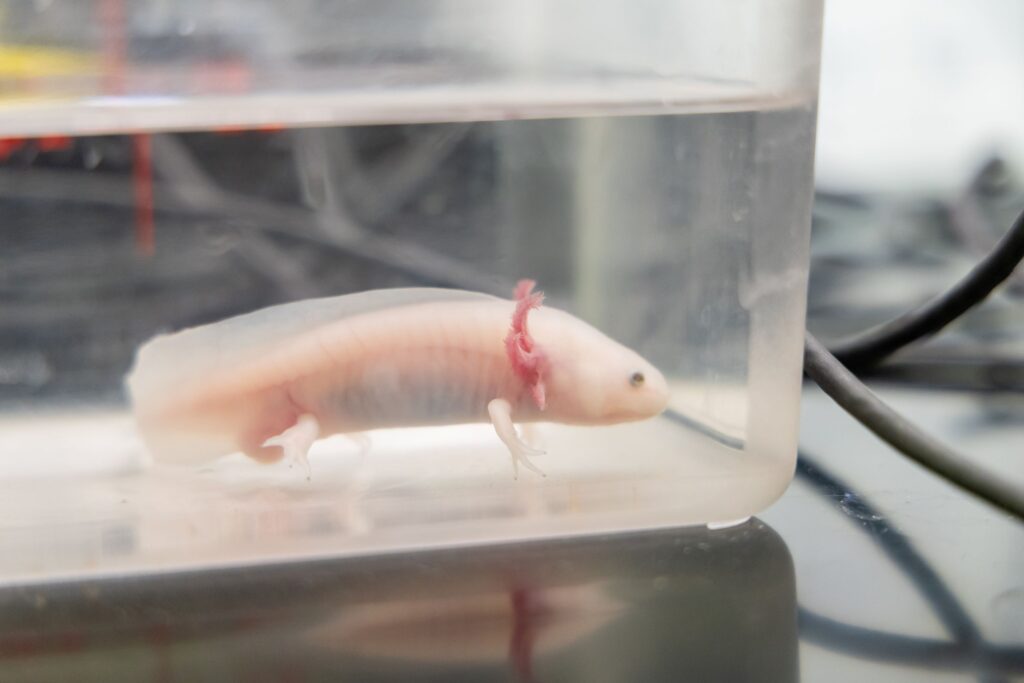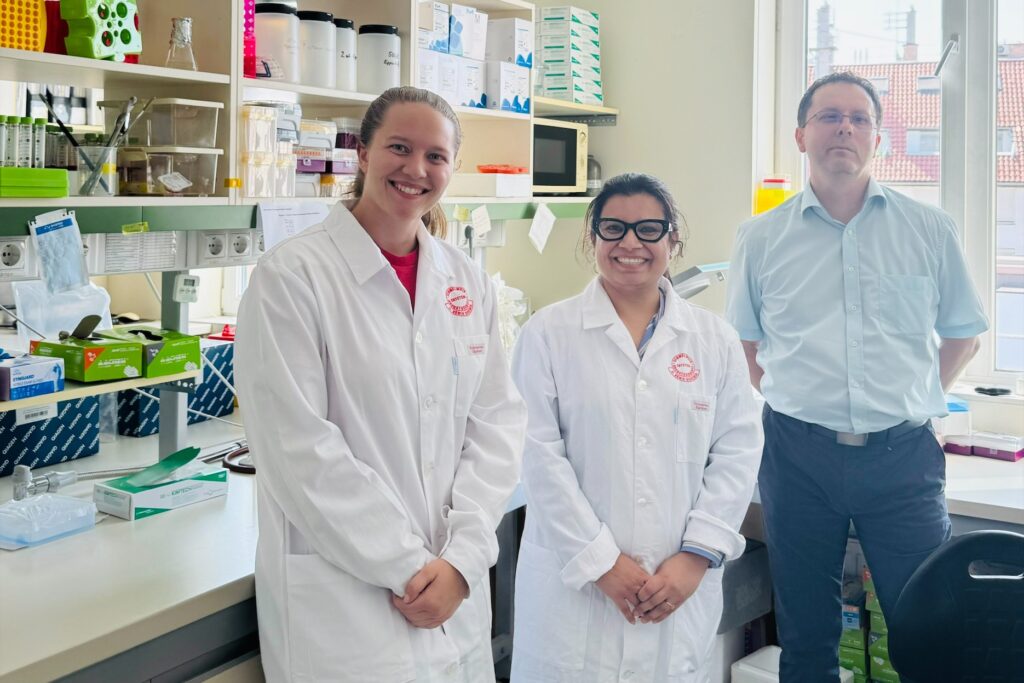Bridgewater College students are spending their summer working with faculty on research projects on topics ranging from biochemistry to food insecurity. This year the College awarded more than $100,000 in funding, supporting the largest number of students in program history. Funding for the 26 student recipients was provided by the Dr. John W. Martin Summer Science Research Institute and by The Research Experience @ Bridgewater (TREB). Here are a few of their projects:
Skyler Parks ’26, a biochemistry major with minors in biomedical sciences and neuroscience, spent a month in Budapest, Hungary, this summer working in Dr. Attila Ambrus’s lab at Semmelweis University, the largest school of medicine and health sciences in central Europe. Under the supervision of Dr. Rippa Sehgal, Assistant Professor of Biochemistry, and researchers at Semmelweis University, Parks worked on a medical biochemistry project that may help advance our understanding of neurological disorders such as Alzheimer’s and Parkinson’s Disease.
Parks worked on generating mutated variants of a particular enzyme that, in humans, is linked to neurological and cardiological disorders. Her goal is to better understand the changes in the structure and function of the enzyme due to pathological mutations, to better understand how it can lead to disease.
This project is part of ongoing research by Sehgal and Semmelweis University that will, she hopes, eventually lead to the development of drug or enzyme-replacement treatments for neurodegenerative diseases.
In an interview with the Virginia Gazette, Parks said that her experience working on an international research team and living abroad gave her greater confidence in herself and her future career.
“It was such an enjoyable and productive time,” she said. “It helped my studies and, really, me as a person.”
Parks is from Poquoson, Va., and hopes to continue to medical school after graduation from BC.

Alec Carpenter ’27 came to Bridgewater to play football, but an injury and an introduction to health science class led him to refocus his energy and attention on the world of exercise physiology.
This summer Carpenter is working on a research project that combines that interest in physiology with his personal experiences in the gym. Carpenter says that when he was doing resistance training, he noticed that giving himself a 10 to 15 second break between repetitions—what is known as “rest-pause sets” in the world of exercise science—seemed to enable him to exercise longer and make greater progress.
For his research project, Carpenter is testing out his hypothesis that rest-pause sets lead to a greater increase in muscle activity and growth than traditional weightlifting with continuous sets. Carpenter has recruited volunteers between the ages of 19 and 45 years to participate in three randomized trials. Under the mentorship of Dr. Robert Shute, Assistant Professor of Health and Human Sciences, Carpenter has his volunteers complete either rest-pause or traditional sets of weightlifting and then measures the effectiveness of the exercise. The testing takes place in the College’s Strength and Conditioning Laboratory. In addition to observation, Carpenter measures the volunteers’ muscle activation, tests their testosterone levels and measures their muscle circumference to determine the success of each set.
“I love this field even more than I thought I would,” Carpenter says, crediting Shute with inspiring his passion for science research.
Carpenter is a health and exercise science major from Middletown, Md., and said he hopes to pursue a PhD in exercise physiology and continue to do research in the field.

Lauren Fisher ’26 and Alisa Hart ’26 are putting their passion for gardening and community service to work this summer on a project investigating the availability of fresh produce at food pantries in Harrisonburg and Rockingham County.
The students spend a portion of their time working in the Bridgewater Sustainable Food Pantry Garden located at the Bridgewater Church of the Brethren near the College. Under the mentorship of Dr. Timothy Kreps, Associate Professor of Biology and Environmental Science, they plant, weed, harvest, pack food, drive produce to local food pantries and manage volunteers.
With their knowledge of the production side of community gardens, Fisher and Hart then reach out to local food pantries to gather information on how the produce from the Bridgewater garden and elsewhere is received and distributed to food pantry customers. Fisher says that the interviews they have conducted so far suggest that the largest challenges preventing food pantries from offering fresh fruits and vegetables are their lack of refrigerated storage space and the volunteers to get the produce to those in need before the produce goes bad.
Fisher says that one of the goals of their project is to let people know about the need for volunteers and funding for food pantries in the area.
“If you’re not part of the population that utilizes food pantries, you might not know how difficult it is [to get fresh produce],” Fisher says. “Raising public awareness could really help.”
Fisher is from Fishersville, Va., and Hart is from Leesburg, Va. Both students are environmental science majors and hope to continue their research into the fall semester.

Dr. Moshe Khurgel, Associate Professor of Biology, and Hulleman’s advisor on this project, has been researching axolotl with a particular focus on their body growth in connection to limb regeneration. As such, he takes lots of photos of the salamander and manually measures the parts of their bodies that are of interest.
Hulleman hopes to improve the efficiency of the measuring process by building a machine learning model that will automate the measuring process. This spring, Hulleman built a proof-of-concept model; this summer he will improve and refine it.
Hulleman is an environmental science and data science and analytics double major. He comes to Bridgewater from nearby Harrisonburg, Va., and says that he hopes to pursue a career in environmental conservation research and management.
“I want to put myself in a position where I can be working to collect data in the natural sciences or working with the data to solve problems,” Hulleman says. “This project will greatly benefit my knowledge and understanding of scientific research tools.”
– Heather S. Cole
7/28/25


